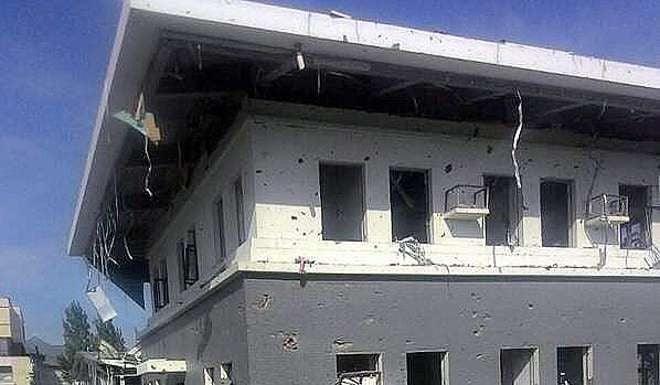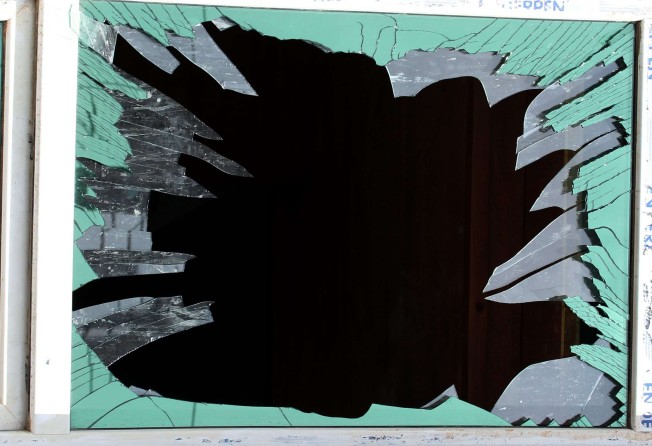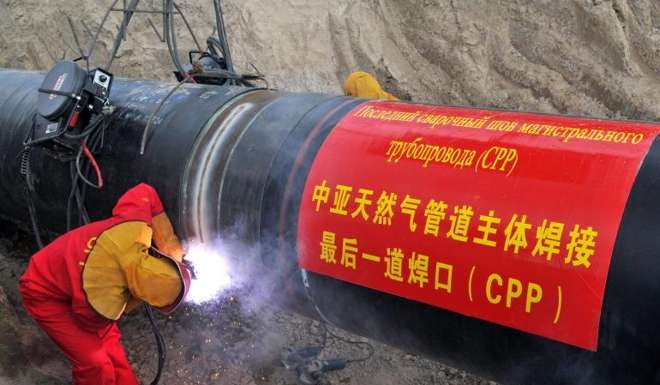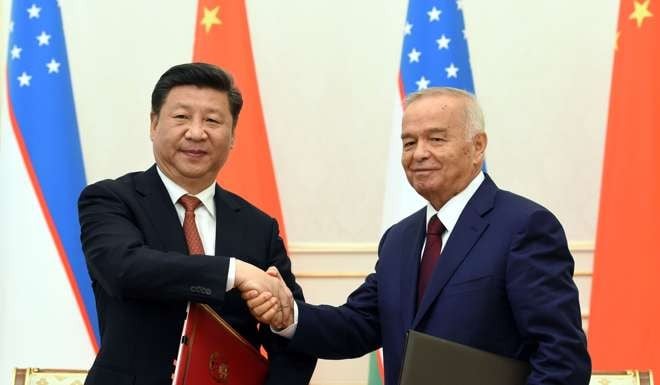
As China takes greater stake in Central Asia, rewards bring their own risk
The nation is expanding its infrastructure horizons in the region but the growing investment also raises the security stakes, analysts say

The recent attack on the Chinese embassy in Kyrgyzstan has underscored the security threats Chinese interests face in Central Asia, where growing investment links present a double-edged sword, analysts say.
Mainland companies are taking a bigger, more visible stake in the region, becoming targets for militants in the process. But the money these firms bring is also pushing national governments to ensure stability, even during potentially rocky transitions of power, they say.

Last month an apparent suicide bomber drove a car into the Chinese embassy in Bishkek, killing himself and wounding at least three others. According to the Kyrgyz authorities, the attack was ordered by Uygur militants based in Syria and carried out by a member of the East Turkestan Islamic Movement.
The Chinese foreign ministry said ETIM was a terrorist group that presented a serious threat to China, Syria and Central Asia, as well as other countries.
China has long been a major driver of infrastructure and construction in Central Asia, a role set to intensify under Beijing’s “One Belt, One Road” scheme. One landmark project is the Central Asia-China gas pipeline.
Already three pipelines are pumping natural gas from Turkmenistan to Xinjiang and a fourth pipeline passing through Kyrgyzstan is under construction, part of a vast system feeding energy to an estimated 500 million people on the mainland.
One person in charge of gas projects in Central Asia, who did not want to be named, said his company had been negotiating with local governments to seek support from the army to protect facilities and staff.

“Facilities can be repaired once damaged in terrorist attacks, but the safety of our employees has been a big concern since the attack on the Chinese embassy in Kyrgyzstan,” he said.
The geographical position of Central Asia – south of Russia, west of China, and north of Iran, Afghanistan, Pakistan and India – had made the region vulnerable to terrorism, radical Islamism and national extremism, analysts said.

“Hatred against China, rising national extremism, crimes involving terrorism, as well as intensified social contradictions have all increased the safety risks to [Chinese] personnel in the region,” said Su Chang, an associate researcher at the Institute of Russian, Eastern European and Central Asian Studies at the Chinese Academy of Social Sciences.
“But local governments have improved their security and military capabilities, so the situation remains under control.”
Leadership changes are another source of concern for Beijing. The recent death of Islam Karimov, who ruled Uzbekistan for 26 years, raised questions on the overall direction of relations with Beijing and stability in Central Asia.
Nations in the region have a high expectation that China will support their infrastructure construction
Next door in Kazakhstan, signs have emerged that hardline president, 76-year-old Nursultan Nazarbayev, was starting to seek a successor after ruling the country since 1989.
But observers agreed that power transitions in the two nations would not trigger any major change in direction.
“Nations in the region have a high expectation that China will support their infrastructure construction and continue to invest,” said Wang Xianju, deputy director at Renmin University’s Russian Studies Centre.
“For Beijing, another advantage is that we are neighbours, so if intergovernmental relations are fine, investment is fine.”